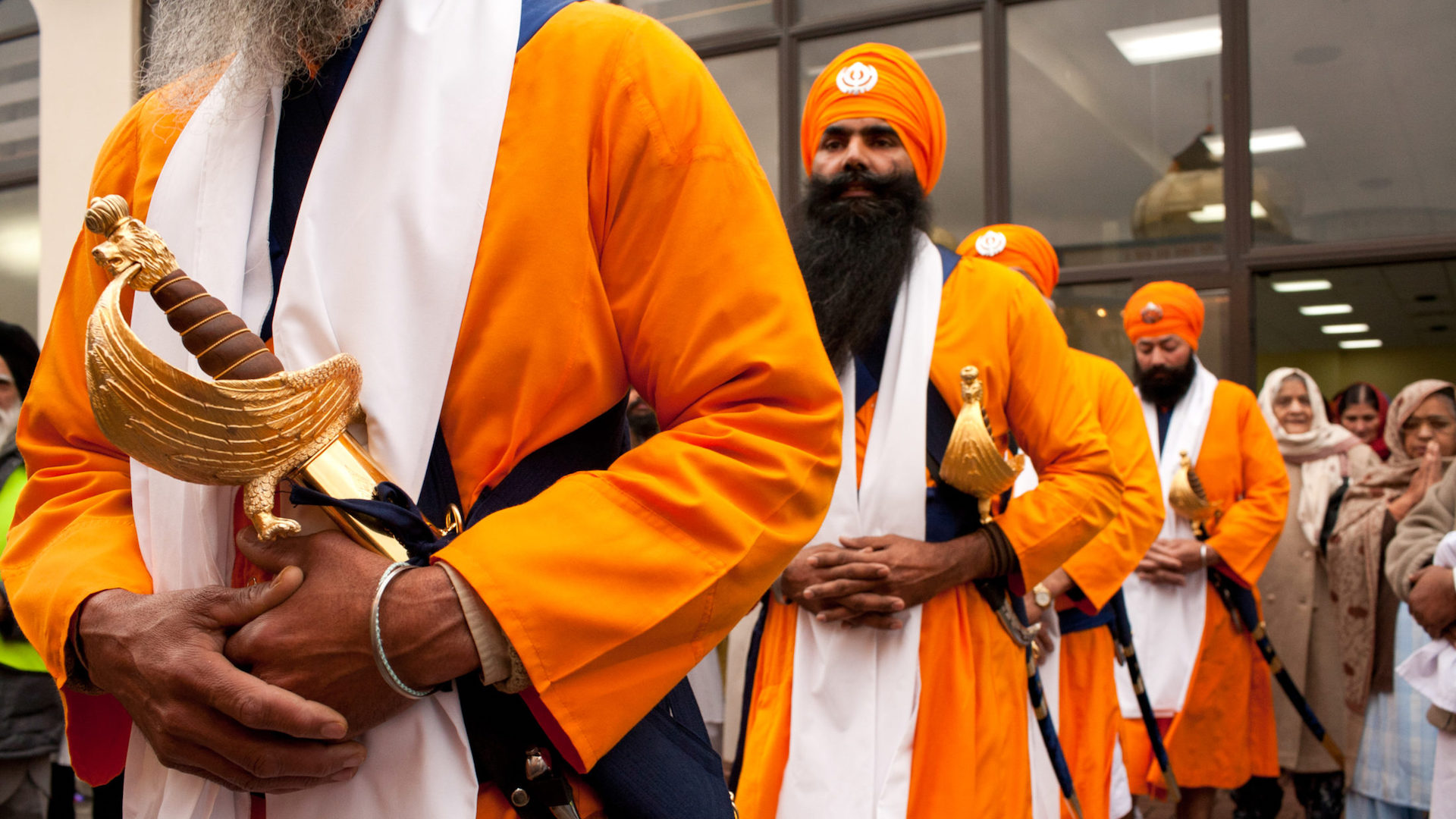
Jesus isn’t the only way to God, and it’s offensive to tell me that. There were plenty of gurus who taught what Jesus taught. You can follow any of their examples and be just as good a person as Jesus tells you to be.
That’s what I used to believe, and that’s probably what the half a million Sikhs in America believe today. Yet the faith I had in my gurus’ teachings unraveled when I was overwhelmed by my sin. The Holy Spirit got my attention when I heard that the reason behind Jesus’s death and resurrection was the sin I couldn’t shake or fix by being a devoted, religious person.
My decision to follow Jesus didn’t follow a gospel presentation specific to how Sikhs may best receive the gospel. But now having been a Christian for nearly twenty years, I desire for my Sikh friends and family to know Christ. If you have Sikhs in your community or will encounter them on a mission trip, there are a few things to keep in mind.
Sikh Belief and Practice
Sikhism first emerged in India when its first guru was unhappy with the options of Islam and Hinduism. He and future gurus developed a subtle blend between the two. This is a summary of the key points of their faith.
God
Sikhs (pronounced sicks) believe there is one God who is all good, all knowing, and embodies truth. He is eternal and the sustainer of all things.
Scripture
Ten gurus have revealed all there is to know about God, humankind, and salvation. The first nine gurus were men, and the tenth and final guru is the Sikh holy book, Granth Sahib. Although these gurus were not incarnations of God, Sikhs believe they were without sin.
 Worship
Worship
The Sikh place of worship—a gurdwara—has a copy of the Granth Sahib. Sikhs come to the gurdwara to worship this guru, to fellowship with one another, and to provide meals and lodging to anyone—Sikh or not—who comes to visit.

Salvation
Three components are required to obtain a relationship with God and end the cycle of reincarnation.
- Devoted meditation on the name of God because his name represents greatness, holiness, and everything else we strive to attain. This serves as the sanctification process by which Sikhs align their mind to that of God.
- Service to the final guru (the holy book) and the Sikh community.
- Although grace is God’s to give out as he pleases, it’s believed that enough grace can be earned through meditation and service.
Concepts or Practices Sikhs Don’t Acknowledge
Sikhism was born in the land of Hinduism, so it’s often confused as another version of it. This is what sets Sikhism apart from Hinduism and other major religions.

Multiple Gods
Sikhs would reject the claim that their religion is polytheistic. They believe in one God despite their belief that their gurus were sinless yet not God himself. (Ironically, the Sikh pictured above is hanging images of revered Sikh and Hindu figures.)
One Way
Although most Sikhs follow only their ten gurus, they would not tell someone of another faith that their beliefs are wrong. Sikhs don’t necessarily hold to the exclusivity of any one faith.
Evangelism
Sikhs don’t believe it is their duty to evangelize non-Sikhs. They believe their divine role is to serve the needy, serve their community, and meditate.

Idols
Sikhs do not believe God can be represented with shapes or images, so they reject any form of idol worship.
Five Symbols Important to Sikhs
Sikh religion and culture are very intertwined. Although there may be religious undertones to the five objects they have adopted, those objects are commonly understood as symbols of Sikh heritage and values.

Uncut hair symbolizes spirituality and sets them apart in society. This is the main reason Sikh men wear turbans—their hair can be multiple feet long.

Most Sikh men carry a small dagger to symbolize their role to protect society against injustice. The ones pictured above are for a special ceremony and are, therefore, larger and less concealed than daggers Sikhs normally carry.
 Sikhs wear a steel bangle that symbolizes oneness with God. It also serves as a reminder to think before acting.
Sikhs wear a steel bangle that symbolizes oneness with God. It also serves as a reminder to think before acting.
Both men and women carry a comb to symbolize the importance of hygiene and discipline.
Sikh men wear short trousers or underwear underneath their outerwear to symbolize self-control and chastity.
What to Keep in Mind When You Share with Sikhs
Have Integrity
Sikhs are very friendly and respectful of relationships. If they sense that you seek a friendship for the sole purpose of sharing the gospel, they will feel betrayed and distance themselves. Apologetics don’t work because it makes Sikhs feel like you’re attacking their way of life.
Leave Cultural Symbols Alone
Don’t use particulars about their religion or culture as a launching point for a gospel presentation. That would turn things they are proud of (their uncut hair, their dagger, their book) into objects of shame.

Focus on Grace
Sikhs resonate with the concept of grace even though their understanding of grace differs slightly from ours. Think about how grace shaped your experiences with Christ, and share your testimony from that perspective.
Let the Holy Spirit Convict
Christians where I live often tell Sikhs that if they accept Jesus, they have to get rid of all their gods, cut their hair, and stop going to the gurdwara. Please don’t make that a point of emphasis when you share with them. Wait for the right time, explain relevant Scripture to them, and let them make the decision to remove images of their gurus or leave their house of worship. Allow the Spirit to move, and let the Bible speak for itself. As they’re being renewed in their faith, they will be able to make some strong decisions for Jesus.
B. Singh is a pastor of a Baptist church in South Asia and oversees a church-planting network among Punjabis. He also does professional translation and dubbing in Hindi and Punjabi to support his family and ministry.

